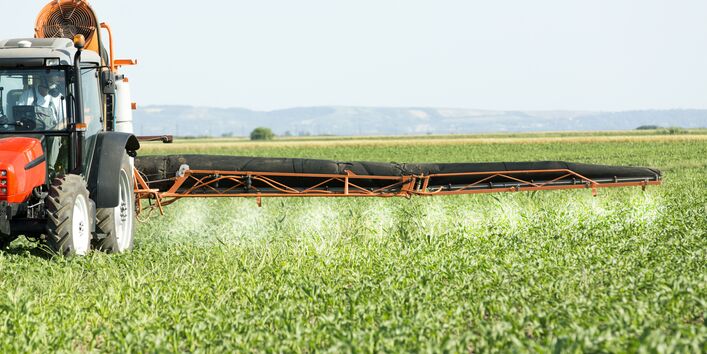Pesticides are chemical or biological agents used in agriculture to kill unwanted organisms. They protect crops and their products from various harmful organisms, such as insects that damage leaves or fruit, unwanted weeds, or storage pests. Plant protection products are relevant to the environment because they can enter neighboring riparian habitats or water bodies both when applied to the field, for example through drift of spray agents or contaminated seed dust, and later through runoff from farmland.
The intensive use of highly effective broad-spectrum herbicides and insecticides also leads to the impoverishment of plant life and deprives many bird, mammal, and other animal species in the agricultural landscape of their food source. Numerous scientific studies have shown that pesticides are one of the main causes of the decline of various field bird species, such as the skylark, yellowhammer, and partridge, via the food chain. The worldwide decline in pollinators is also seen in scientific literature as being causally linked to the effects of pesticides on the seasonal availability and diversity of flowers.
Detailed information on this topic can be found on our pesticide topic pages and in our environmental data (only in german).
